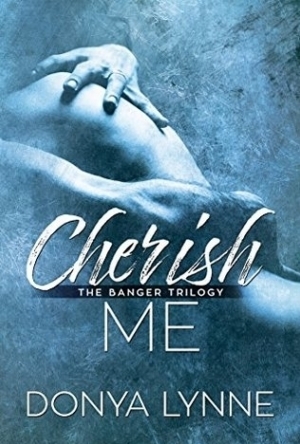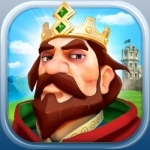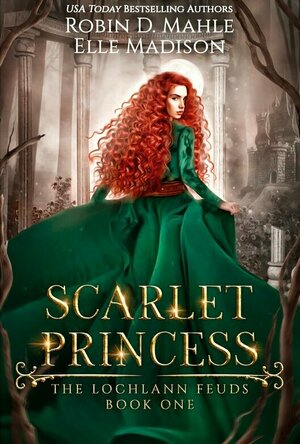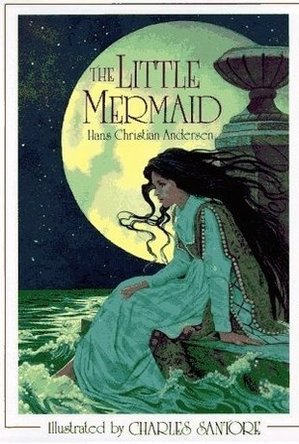Lottie disney bookworm (1056 KP) rated Scarlet Princess in Books
Aug 30, 2021
I mean with an opening line like that you know it’s going to be a great book right?!
Regular readers will know I’m a bit of an ElBin fangirl and often devour their books in 1 or 2 days. Scarlet Princess was no exception: I kept my kids fed and held down my full-time job for the day but the rest of the time was spent reading this amazing return into the Lochlann world.
Scarlet Princess is the first in the Lochlann Feuds series which is based approximately 20 years after Autumn’s Reign, the final in the Lochlann Treaty series. However, you don’t have to read the Lochlann Treaty in order to read Scarlet Princess: the world building, plot and characters shine just as brightly for this to be a standalone novel.
“It’s a lotus flower. They’re rare, complex flowers. Difficult to keep alive.”
“That doesn’t sound like anyone I know”
Scarlet Princess introduces us to Rowan, the Princess of Lochlann and her cousin Davin, whom we briefly met in the Lochlann Treaty. The cousins give the impression that they either go looking for trouble, or trouble just finds them! Therefore, it shouldn’t be so surprising that when we meet them, Rowan and Davin are just about to find themselves imprisoned in the neighbouring kingdom of Socair.
Sadly, Socair and Lochlann don’t have the friendliest history so getting home will be no easy feat for the cousins, if they can escape death first.
“Amicable and accommodating, Princess. I wonder if you are capable of either.“
Rowan is, without a doubt, a product of her parents: with her fiery red curls and equally fiery attitude it is easy for us to assume that Rowan takes after her father but then you find yourself internally shouting (or externally- no judgement) “why did you do that?!” and suddenly you see her mother's emotional, impulsive nature.
The smart mouth and the booziness? Well that’s just what makes Rowan, Rowan! And we love her for it!
“Am I boring you Princess Rowan?” He sighed.
“Always”
As Rowan’s journey continues though we see that she has been deeply affected by her parents’ quest for love. Our princess is quite closed off to love and is happy for a marriage to be arranged for her. At her young age Rowan equates love with warring kingdoms, losing children, losing husbands: ultimately, she equates love with loss.
Maybe that is why Rowan hides behind a mask of sarcasm and glib comments, seldom ever facing the reality of her predicament until it is too late.
I didn’t want the kind of love that could break you.
Behind her sarcasm though it is clear Rowan cares deeply about issues such as poverty and equality. She is forced to see that her life is very different in Lochlann, where villagers are not suffering and are looked after by their leaders; women are not seen as quiet mice who need protecting as they are in Socair. Maybe, just maybe, her life in Lochlann wasn’t as bad as she thought? But will Rowan ever see Lochlann again?
Besides, I never had been good at making the smart choice.
The cast of characters surrounding Rowan are equally as amazing as our princess. Davin is a ladies’ man just like his father, Iiro is authoritative one minute but then casually tortures his brother sensibilities the next and Mila is a great friend who comes swooping into Rowan’s life – there is definitely more to Mila than meets the eye though.
Rowan’s escort through Socair and the poor soul on the other end of most of her sarcasm is Lord Theodore, her captor and the heir to the Elk clan. Theo is fair where Rowan is fiery; stoic where she is scandalous and the tension between them …. oof it’s enough to make you swoon!
“You know when something just catches your attention and you can’t explain it?“
I loved revisiting Lochlann only to be immersed in the Kingdom of Socair: the mysterious enemy lurking behind the mountain. The 9 clans created a whole new dynamic from the previous books and the plot arc could have easily got lost within all the clan politics but it flowed beautifully.
All I will say is that I really shouldn’t trust Robin and Elle with happy endings – they will always rip it away with a few chapters to go. These two are the Queens of cliff-hangers!
Grab your copy of Scarlet Princess on August 27th 2021. Devour it in one day and then join me anxiously anticipating the sequel, Tarnished Crown in November 2021.

PrinterShare Premium - Printing documents, photos
Productivity and Business
App
With PrinterShareTM you can print photos, contacts, and web pages. Many other apps, including Mail,...
Kristy H (1252 KP) rated The Nowhere Girls in Books
Dec 24, 2017
This is an incredibly timely, wonderfully descriptive, and well-written novel that encapsulates the struggle felt by teenagers and young women in dealing with sexual assault, rape, and violence against women. There's a definite trigger for sexual assault/rape, so do avoid this novel if that is an issue for you. This book can certainly be painful to read, but it's an amazing read and incredibly powerful, as well.
The theme of boys and men getting away with horrible things in their towns seems so popular of late in books I've been reading. That could mean that The Nowhere Girls is repetitive, but it's not at all. It's a wonderful additional to this topic, which is a discouraging one and quite representative of how things are in our current society.
For me, the strength of this novel came with its characters and its brutal honesty. I really loved the three main characters, especially Erin, and just felt for all three girls. This is the first book I've read by Amy Reed (but won't be the last), and I was so impressed by her writing. The girls pop off the pages. The novel is written from the perspective of Grace, Erin, and Rosina, as well as Lucy and "Us"--a section that depicts the state of things from various high school females. Reed gives us a fairly diverse cast, including Rosina, whose family are Mexican immigrants; a character with autism in Erin; and several LGBTQIA characters. And, of course, it's wonderful to have so many female perspectives represented. We also get a few glimpses of some of the boys via excerpts from a despicable blog, which is quite effective in its own right.
As I said, so much of the strength of this book comes from its honesty. It doesn't shy away from the fact that the female teens are dealing with some very harsh realities in relation to sex, and it makes it clear how much they truly have to deal with. There are some extremely powerful moments in this novel (there's a chapter that occurs with some of the girls in a model home, and it's just wow. Amazing). It lays so much bare about what high school girls truly must go through. I found the brutal and realistic look at women and sex refreshing--albeit terrifying and heartbreaking. Rape, sexual assault, the power of sex, the way these women use sex to relate to each other and to boys--it's all there, and the result is heartbreaking, sad, powerful, and yes, sometimes hopeful.
A few times, I wasn't sure if I always believed how the authority figures dealt with the girls and their group, but, truly, it's probably a realistic portrayal of small town America. The ending was also a little neat, but still worked in the context of this novel. I kept thinking how much I'd like my daughters to read this book when they're older, because there is so much here: so many talking points and truths and so many wonderful and strong women among all the sadness.
In the end, this was a slow-moving book at times, but it was so well-written and a very powerful read. The characters are so strong, and you truly become part of their world as you read. I feel as if this is a must-read for female teens, and it's just so timely now in our culture, where the news brings more sexual assault talk each evening. There is something about this book that will leave you with hope, despite the horrors, and that's so important right now. Definitely a worthwhile read.
Grace and her family have just moved to a new town after her Baptist preacher mother has a spiritual experience and their small Kentucky town decides she is far too progressive for their community. Grace is shunned and the family basically flees for more open-minded pastures. Erin is a beautiful girl who loves science and Star Trek: The Next Generation. She also has Asperger's and a secret. Rosina is a lesbian struggling to be herself within the confines of her conservative Mexican family. She dreams only of playing music and escaping her town, instead of taking care of her gaggle of cousins and working in her uncle's restaurant. Grace soon learns that the former occupant of her new house was Lucy Moynihan, who accused some popular boys of rape. Lucy wasn't believed, had a breakdown, and left town. While she's never been one to stand up for anything before, this angers Grace in a way she cannot fully describe. Erin and Rosina empathize with Lucy's situation, too. So the three find themselves an unlikely trio, and they do something even more unlikely: they form a secret group, made up entirely of girls, to protest the horrible culture at their school--a culture that condones things like rape and mistreatment of women. The group quickly takes off and the three girls realize that the group--and this cause--is far bigger than themselves.
This is an incredibly timely, wonderfully descriptive, and well-written novel that encapsulates the struggle felt by teenagers and young women in dealing with sexual assault, rape, and violence against women. There's a definite trigger for sexual assault/rape, so do avoid this novel if that is an issue for you. This book can certainly be painful to read, but it's an amazing read and incredibly powerful, as well.
The theme of boys and men getting away with horrible things in their towns seems so popular of late in books I've been reading. That could mean that The Nowhere Girls is repetitive, but it's not at all. It's a wonderful additional to this topic, which is a discouraging one and quite representative of how things are in our current society.
For me, the strength of this novel came with its characters and its brutal honesty. I really loved the three main characters, especially Erin, and just felt for all three girls. This is the first book I've read by Amy Reed (but won't be the last), and I was so impressed by her writing. The girls pop off the pages. The novel is written from the perspective of Grace, Erin, and Rosina, as well as Lucy and "Us"--a section that depicts the state of things from various high school females. Reed gives us a fairly diverse cast, including Rosina, whose family are Mexican immigrants; a character with autism in Erin; and several LGBTQIA characters. And, of course, it's wonderful to have so many female perspectives represented. We also get a few glimpses of some of the boys via excerpts from a despicable blog, which is quite effective in its own right.
As I said, so much of the strength of this book comes from its honesty. It doesn't shy away from the fact that the female teens are dealing with some very harsh realities in relation to sex, and it makes it clear how much they truly have to deal with. There are some extremely powerful moments in this novel (there's a chapter that occurs with some of the girls in a model home, and it's just wow. Amazing). It lays so much bare about what high school girls truly must go through. I found the brutal and realistic look at women and sex refreshing--albeit terrifying and heartbreaking. Rape, sexual assault, the power of sex, the way these women use sex to relate to each other and to boys--it's all there, and the result is heartbreaking, sad, powerful, and yes, sometimes hopeful.
A few times, I wasn't sure if I always believed how the authority figures dealt with the girls and their group, but, truly, it's probably a realistic portrayal of small town America. The ending was also a little neat, but still worked in the context of this novel. I kept thinking how much I'd like my daughters to read this book when they're older, because there is so much here: so many talking points and truths and so many wonderful and strong women among all the sadness.
In the end, this was a slow-moving book at times, but it was so well-written and a very powerful read. The characters are so strong, and you truly become part of their world as you read. I feel as if this is a must-read for female teens, and it's just so timely now in our culture, where the news brings more sexual assault talk each evening. There is something about this book that will leave you with hope, despite the horrors, and that's so important right now. Definitely a worthwhile read.

Simply Piano by JoyTunes
Education and Music
App
Simply Piano is a fast and fun way to learn piano, from beginner to pro. Works with any piano or...
Ivana A. | Diary of Difference (1171 KP) rated The Little Mermaid in Books
Nov 16, 2018
I grew up with Disney movies, and my favourite one was the one with the mermaid that has long red hair, and I loved her love story, and also enjoyed watching the rest of the movie series that followed years later.
And while loving Ariel for so long, I have never actually read the original story. So a few weeks ago, I decided to cherish it properly, as a true childhood love deserves to be cherished.
And I was left with my jaw dropped and my mouth open, unable to sleep. I can’t say this book crushed my childhood love, but it definitely shook me quite hard.
If you are expecting to read about the little mermaid, and her adventures in the water, and how she would give anything to see how people live on Earth, and fall in love with a prince – you will get all that. In fact – the book description is far better compared to the movie. Incomparable, actually. The book glows with bright colourful descriptions of the world under the sea, and it is so vividly enchantingly explained.
But if you are expecting to read about the adorable love story of Ariel and the prince, and their happily ever after – that is not happening. Because things go wrong. Horribly wrong. With a crushing, terrible end, that will torture you in your dreams.
It wasn’t my intention to make this review so dark. The story is still wonderful, and full of life. However, there is no happy ending, and that, for me, was crucial to not enjoy it.
And I am not usually upset with unhappy endings. It happens so often. But this one was so brutal and cruel, that it felt so disturbing. Maybe, because it is my favorite childhood movie. Maybe, because I knew this to be a happy story. Maybe, because I didn’t expect this at all.
Hans Christian Andersen is an amazing writer. I have read many of his stories, and enjoyed them greatly. I honestly don’t know what was going on in his life when he was writing this, but wow. Just wow.

Cherish Me (Banger Triolgy #3)
Book
She wants a sexy summer fling. He wants more. And he won’t stop until he gets it. NOTE: This...
Leanne Crabtree (480 KP) rated Catch (Angler, #2) in Books
Sep 5, 2019
I read the first book, Bait, back in February 2012 and loved it. I still remember a lot of what happened and with how many books I read, that's a miracle! I think it was the whole using humans as bait to catch evil vampires that drew me in and hooked me.
This carries on from the last with just a few months passing and Connie and Rurik are in Rio. I will say that you don't necessarily need to read the first book for this to make sense but it does help to understand the connection between Rurik, Connie and Tane.
The author has this way of writing that draws you in and makes you want to get lost in the world she weaves. I will quite happily get lost in it. (Bring on book 3!)
Tane was an odd one for me, through both books, but he evolved a lot in this and we got to know him a lot more and it's obvious he isn't as bad as previously thought. Rurik is still the protective, nice, sexy vampire from the first and Connie still likes to kick arse when she can.
Though there are a few sex scenes throughout the story, there is also a good, strong plot to get lost in. I guess I should mention that it has a ménage scene in it near the end (M/M/F) that had been brewing for a long time and it was quite hot.
I cant wait to read the third book in the series to find out what's going to happen next.

Empire Four Kingdoms - MMO War
Games and Entertainment
App
Build a fortress, fight an army and conquer enemies in this epic multiplayer game! Use your strategy...
Beckie Shelton (40 KP) rated The Art of Hiding in Books
Oct 6, 2017
Until then It was a two all the way, so sorry.
I'm obviously in a minority here in regards to how The art Of Hiding was perceived by myself as I've seen many positive reviews singing its praises and this is a well-written story it just personally wasn't really my cup of tea.
So I'm going to try and pinpoint what wasn't working for me as there was never one major thing that stood out specifically and also what was actually floating my boat.
So first things first I've never read anything by Amanda Prowse before, so was going in blind here.
Well, my initial impression was that The Art Of Hiding was really well written, the words flowed easily and the writing style was one that was easy to get lost in.
But here comes my main problem, the actual story itself, I found it a bit boring and somewhat one-dimensional.
I also wondered whether the author herself has ever lived on the breadline or was this her portrayal of what she thinks it would be like to be in that scenario.
I thought to myself why wasn't Nina McCarrick with no income not down the job centre and putting in an application, dare I say it for housing benefit.
She was meant to be on her arse after all.
It also annoyed me how living on the breadline was initially portrayed all doom and gloom and shitty childhoods, I didn't find it a realistic portrayal of how the other half lives it was very stereotypical in the way it depicted the rich and the poor.
I found it so hard to connect with the characters especially Nina who I found very whiny and almost childlike in some of her reactions.
Thank god for Tiggy, she was a breath of fresh air and also very forgiving considering the way she has been treated by her sister over the past few years.
I was so glad we had tiggy to add a bit of realism to this tale, I needed her as She was the one character I actually liked completely.
So a brief description of The Art Of Hiding is Nina McCarrick has the perfect life.
Until that is her husband Finn dies in a car crash leaving Nina and their Two sons in a mountain of debt and their whole lives unravelling.
Nina moves her boys back to the streets of Southampton where she grew up and The Art Of Hiding is really the story of how Nina and her children cope and grow as individuals as their world implodes.
As I said earlier I couldn't initially connect, but then a bit before the end I felt it and this is mainly what made me bump this up a star, I had a lump in my throat as Nina and her kids visit their former home with Tiggy, it was very poignant and sentimental and after pages of just reading, I actually started to feel the words written.
Overall though this book didn't make me feel good, On finishing, I felt rather sad and deflated and I like my fiction to leave me feeling rejuvenated, an emotional wreck, happy even sad, but not deflated and down that's a no-no.
I really do think I would enjoy other works of Amanda Prowse's as I really did like the writing style It was just the Art Of Hiding just didn't quite hit the mark for me.
So, In conclusion, this is a well-written story hence the three stars, It just personally wasn't quite for me, yourself well we are all diverse in our likes and dislikes so give it a go, I would so love to hear your take on this.
I would like to thank Netgalley, the publisher and the author for providing me with an arc of The Art Of Hiding By Amanda Prowse, this is my own voluntary, honest opinion.
Arc Reviewed By Beckie Bookworm
https://www.beckiebookworm.com/
https://www.facebook.com/beckiebookworm/
https://www.goodreads.com/user/show/9460945-bex-beckie-bookworm





